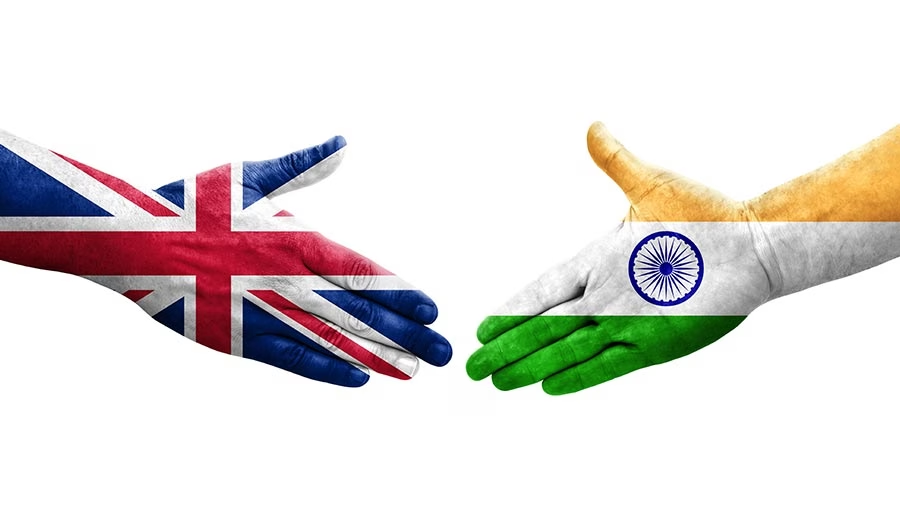India-UK Free Trade Agreement Unlocks a US$1.2 Billion Opportunity for Indian RMG Sector
Key Milestone
India is poised to significantly boost its position in the UK’s readymade garment (RMG) market, with expectations to double its market share from 6% in calendar year 2024 (CY24) to 12% in the near to medium term. This surge is projected to generate an incremental annual export opportunity worth approximately US$1.1 to 1.2 billion, according to a report by CareEdge Ratings.
India-UK Free Trade Agreement: A Game Changer
The India-UK Free Trade Agreement (FTA) is being hailed as a transformative move for India’s RMG sector. Previously, Indian exporters faced a 12% tariff in the UK, which placed them at a disadvantage compared to countries like Bangladesh, Turkey, Cambodia, and Vietnam that already had duty-free access. With the new FTA in place, Indian exporters are now on equal footing, enjoying tariff-free entry into the UK’s US$20 billion RMG market.
Market Dynamics and Global Positioning
The UK remains one of the world’s top five RMG markets, with total imports of US$20 billion in CY24, down slightly from US$24 billion in CY22. India currently holds a 6% share in this market, while China and Bangladesh dominate with RMG exports of US$5 billion and US$4 billion respectively. However, rising labor costs in China and socio-political instability in Bangladesh are driving global brands and retailers to diversify sourcing. India, benefiting from both stability and policy support, stands out as a preferred alternative.
Growth Drivers for India
Several key factors are propelling India’s expected growth in the UK RMG market. The removal of the 12% tariff due to the FTA significantly enhances the price competitiveness of Indian exports. Additionally, favorable policies and ample production capacity within India’s textile ecosystem provide the necessary foundation for scaling exports. The ongoing shift in global sourcing strategies—particularly the ‘China Plus One’ approach—further strengthens India’s prospects. Moreover, the diversification away from Bangladesh, due to ongoing socio-political uncertainties, is likely to work in India’s favor. These combined factors are set to attract new investments, increase foreign exchange earnings, and generate employment opportunities, particularly for women in this labor-intensive sector.
Competitive Landscape and Lessons from Vietnam
Countries like Turkey, Cambodia, Italy, and Vietnam enjoy duty-free or preferential access to the UK market, and their experiences highlight the impact of such agreements. Vietnam, for example, saw its market share in UK RMG imports increase from 2.22% in CY20 to 5.42% in CY24 after the Vietnam-UK FTA came into effect in January 2021. With India now benefiting from a similar arrangement, the path to higher market share becomes more realistic and achievable.
Addressing Structural Challenges
Despite the promising outlook, India’s RMG industry faces some inherent limitations. The country’s export portfolio is heavily skewed toward cotton-based garments, while the global market shows a growing preference for man-made fibre (MMF) products. This mismatch could limit India’s full exploitation of the UK opportunity unless steps are taken to promote MMF production and innovation.
Global Trade Context
In calendar year 2024, the global trade in textiles and RMG was estimated at US$900 billion, of which RMG accounted for approximately US$525 billion. Major RMG importers included the European Union, the United States, the United Kingdom, Japan, Canada, and South Korea—together making up about 44% of the global import market. While the EU and USA historically accounted for nearly 40% of RMG imports, their share has declined in recent years due to inflation and higher interest rates impacting consumer spending.
Final Perspective
According to Krunal Modi, Director at CareEdge Ratings, the India-UK FTA provides India with a 12% duty advantage over China and offers an opportunity to strengthen its market presence in the UK. With China and Bangladesh together accounting for nearly 45% of the UK’s RMG imports, India’s share is expected to grow significantly. The FTA is anticipated to boost investments across the textile value chain, generate employment, and enhance India’s foreign exchange inflows, making it a significant development for the country’s apparel export industry.
